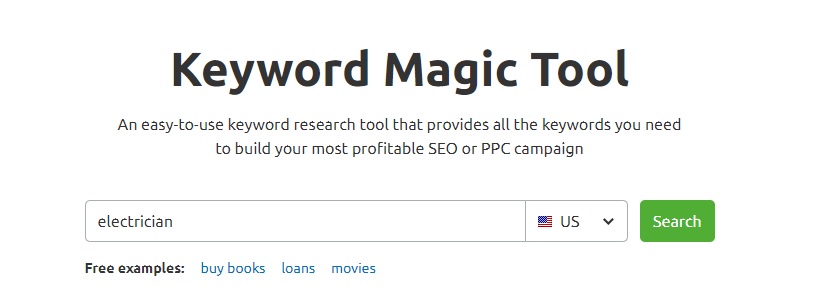Keyword research may be the most important step in an SEO campaign. Just as you wouldn’t build a house on a muddy slope without a proper foundation, you wouldn’t want to begin optimizing a website for search without a solid foundation. To properly lay a foundation, you first need to understand what requirements need to be fulfilled. The same goes for any SEO campaign, you need to understand the requirements of your target audience and how they are searching for solutions, ie. your content, services, or products.
Keyword research provides you with specific search data that can help answer questions like:
- What are people searching for?
- How many people are searching for it?
- In what format do they want that information?
In this post, you will learn strategies to assist in accessing that information, as well as valuable insight into avoiding keyword research blunders and building strong content on your website.
Where Do I Start with Keyword Research?
Ask Questions
In order to grow a business with digital marketing, through search engine optimization, you have to understand what that business is about, who the customers are, and the overall business goals. Many business owners think they know this information by default, but they sometimes find there is more to the puzzle than they realize.
Too many people skip this step because keyword research takes time, and they think: why spend the time when you already know the product or service? The problem with this is that people search for your product or service differently than you may think. The terminology you use to describe your products or services may be completely different than what your customers are using.
Here is an example. John Doe, the owner of The Handy Electrician, based in Philadelphia, has heard about SEO and wants to improve his business by showing up in the organic search results. To do so, we need to ask questions such as:
- What type of electrician is this company?
- Residential vs Commercial
- Who is searching for these terms?
- Who is the customer base?
- When are people searching for an electrician?
- Proactive vs emergency repair
- How are people searching for electricians?
- What words do they use?
- What questions do they ask?
- Are more searches performed on mobile devices vs desktops?
- Where are potential customers located?
There is one final question you need to ask. How can you provide the best content about electrician services and fulfill the requirements or needs of what people are searching to find?
How to Find the Right Keywords
You most likely have some keywords already in mind you would like to rank for in the search engine results. More than likely, those terms are short and broad descriptors of the products or services you provide. These broad search terms of your products, services, or other content are great foundations or “seed keywords” for your SEO campaign.
What Are Seed Keywords?
Seed keywords are how you start an SEO campaign. You can build an entire SEO campaign around your seed keywords and add modifier keywords to create “long-tail keywords”. Here is an example. A seed keyword for John Doe’s business would be “electrician”. A modifier keyword added would be the town/city name, Philadelphia. The new long-tail keyword is “electrician Philadelphia”. That is probably the shortest long-tail keyword in history, but you get the idea. Additional modifiers added to the seed phrase, create a more specific keyword phrase that users are likely to search. Example: “best home electrician in Philadelphia”
Once you enter your seed keywords into a keyword research tool, you will begin your journey and discover a multitude of keywords, common phrases, questions, and topics for your content that you may not have realized people are using to search for your products or services. There are a lot of free SEO tools to use for keyword research, however for this example we will use SEMrush’s Keyword Magic Tool, a software licensed by our agency to do keyword research.

When we enter the term “electrician” into the tool, we find search terms relevant to the seed keyword, such as:
- electrician near me
- local electricians
- licensed electrician
- commercial electrician
- residential electrician
We also see critical data including monthly search volume for the geographic area we set (United States), and a keyword difficulty rating, which is how difficult the keyword is to rank in search results.
